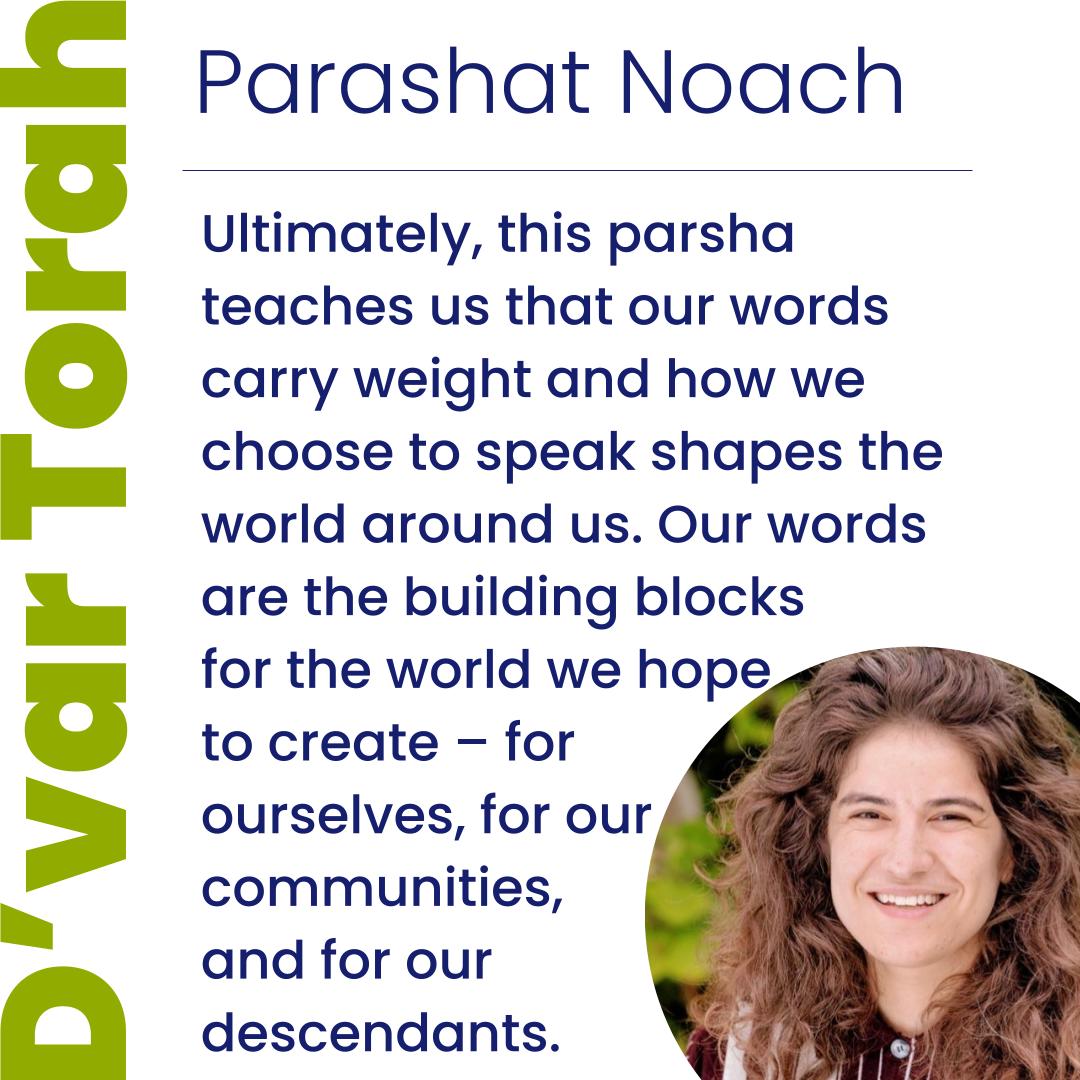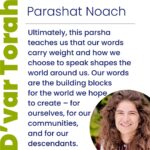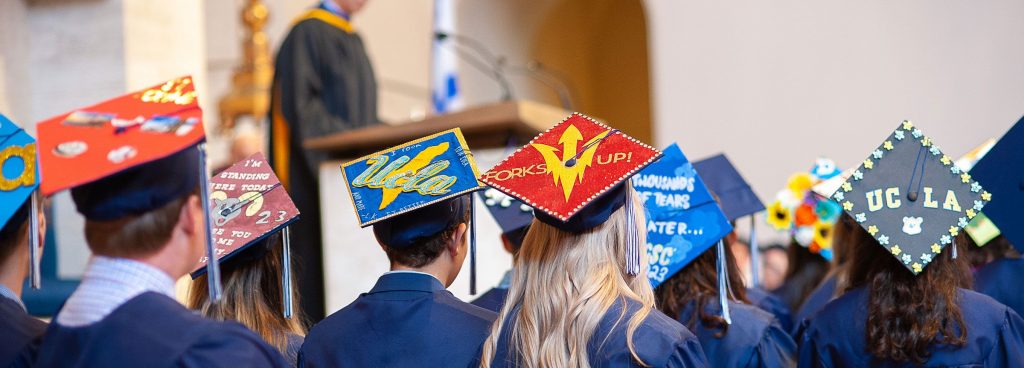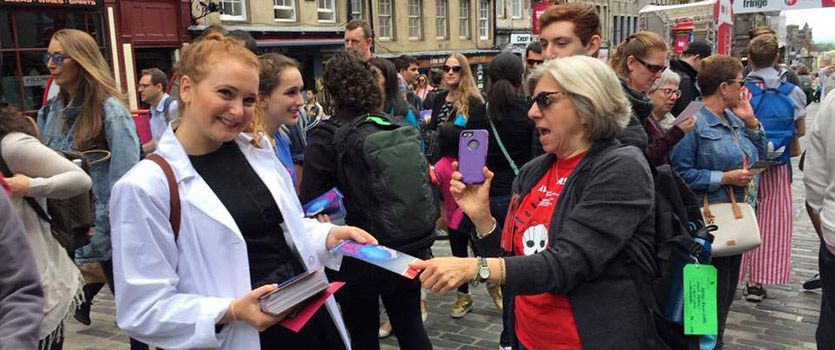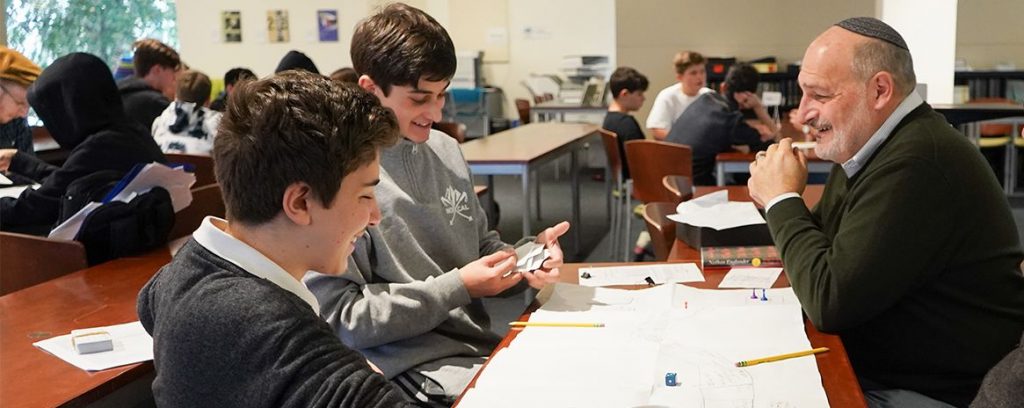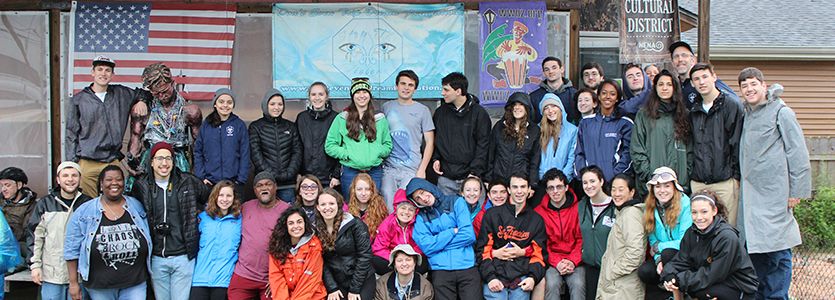by Adi Alouf, Director of Student & Jewish Life
In last week’s Torah portion, Bereshit, God creates the world through word. This week, through parsahat Noah, we again immerse ourselves in narratives that teach us about the power of language.
God tells Noah that He will end all life and instructs him to build an ark for his family and the animals. Noah is notably silent as he receives God’s instruction, builds the ark, and then lives in it through the Flood.
The Baal Shem Tov, 18th-century Rabbi and founder of Chasidut, explains that teivah, the word for ‘ark,’ also means ‘word’ or ‘speech’ (Meirat Anayim Noach: 15). According to this reading, when God instructs Noah to build a physical ark to weather the Flood, God is also teaching Noah, and us, about the power of words to help keep us afloat.
Words create worlds. They have the power to construct new realities and bring tangible things into existence. We can find shelter and comfort in language – in caring words from loved ones, in age-old prayers, in poetry, or in our ability to express and externalize our thoughts and feelings. Language can unify, offering connection and understanding. We can draw on words to navigate hard, stormy times, to steady ourselves and each other. Just as the physical sukkah symbolizes the clouds of glory and God’s protection, the physical teivah represents the function of words and language to build, sustain, and carry us through life’s challenges.
Immediately following the Flood and the account of Noah’s descendants, we read of the Tower of Babel – a narrative that warns us of the destructive potential of “שָׂפָ֣ה אֶחָ֑ת וּדְבָרִ֖ים אֲחָדִֽים” or “one language and the same words” (Genesis 11:1). Within the same parsha, through the Baal Shem Tov’s lens, we see how language can be used as a force for both good and harm. Just as the Israelites later use gold to construct the Mishkan or, alternatively, to fashion the Golden Calf, language too can either connect us and bring us closer to holiness, or be manipulated for destructive and power-seeking ends.
Ultimately, this parsha teaches us that our words carry weight and how we choose to speak shapes the world around us. Our words are the building blocks for the world we hope to create – for ourselves, for our communities, and for our descendants.
So as we welcome Shabbat this week, here are a couple of questions to consider around your dinner table:
- How do you find shelter and refuge in language?
- How do the words we choose shape the realities we live in?
- How can we use our “teivot,” our words, to actively build a better present and future, rather than just describe it?
Shabbat Shalom!

